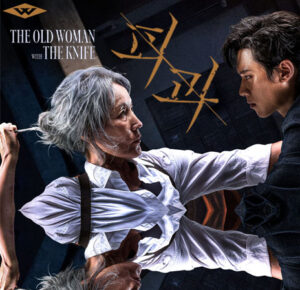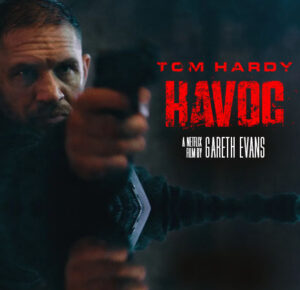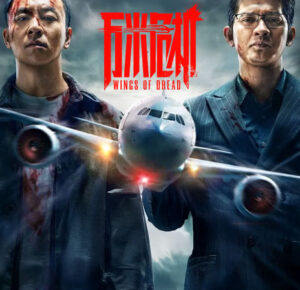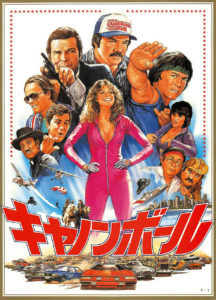
One-Armed Blade DVD Collection (First Look Pictures)
Welcome to the first week of the new year! As far as blu-ray and DVD retail goes, 2012 is off to a slow start, with just one Asian film on the slate for this week.
But hey, Warner Home Video is going crazy with a selection of 3-disc blu-ray sets, which combine three loosely related films in one package for only $22.49. Not too shabby. Just forgive me for repeating the price ad infinitum.
Without further adieu, here are your Asian and genre movie blu-ray and DVD releases for the week of 1/3/12:
ASIAN CINEMA
One Armed Blade Collection (DVD) – this two film set features 1976’s “One-Armed Swordsman” and “One Armed Swordsman Against Nine Killers,” which are unofficial entries in the One Armed Swordsman series but still star Jimmy Wang Yu and David Chiang. Mighty Peking Man says to view these two films as the “Never Say Never Again” of the OAS series
FOREIGN CINEMA
I’m Glad My Mother is Alive (DVD) – a 2011 French language film, based on the startling true story of a young man who becomes obsessed with tracking down his long lost birth mother
MAINSTREAM
Contagion (blu-ray/DVD) – Steven Soderbergh’s 2011 tale of a deadly virus makes its way to home formats
Puncture (blu-ray/DVD) – this 2011 legal thriller allows Captain America himself, Chris Evans, to stretch his acting chops as a drug-addicted lawyer
The Guard (blu-ray/DVD) – Brendan Gleeson and Don Cheadle try to make nice in this 2011 would-be buddy comedy
HORROR
Don’t Be Afraid of the Dark (blu-ray/DVD) – this 2011 chiller stars Guy Pearce and Katie Holmes, and was produced by “Pan’s Labyrinth” and “Blade 2” director Guillermo Del Toro
Shark Night (blu-ray/DVD) – looks like they dropped the “3D” from the title for the home format release, but this is still the same 2011 film where Bill Paxton’s daughter is terrorized by sharks in a lake bed. Unfortunately, this doesn’t appear to be an unrated cut
Red: Werewolf Hunter (DVD) – internet icon Felicia Day stars in this action-leaning 2010 update on the Red Riding Hood tale
Don’t Let Him In (DVD) – a 2011 indie horror film about a hitchhiker who might be something more than he seems
Attack of the Vegan Zombies (DVD) – this 2009 zombie spoof has surprisingly high ratings on Amazon
TRIPLE FEATURES
The Searchers/The Wild Bunch/How the West Was Won (Triple Feature) (blu-ray) – John Wayne and Sam Peckinpah are together at last, or at least they are in this set that combines three classic Westerns in one blu-ray package for only $22.49
Above the Law/Under Siege/Under Siege 2: Dark Territory (Triple Feature) (blu-ray) – arguably Steven Seagal’s most popular and endearing films – well, except for Dark Territory – are now collected in one blu-ray package for $22.49
Twister/Poseidon/The Perfect Storm (Triple Feature) (blu-ray) – get a triple dose of big screen disaster with these three movies where the elements are out to get you. They’re going for $22.49
Alexander Revisited/Troy/300 (Triple Feature) (blu-ray) – get your toga ready for this triple pack of swords-and-sandals epic, which goes for $22.49 on Amazon
Point of No Return/Domino/The Long Kiss Goodnight (Triple Feature) (blu-ray) – think women are the fairer gender? You might not after watching these three films featuring deadly lady assassins and bounty hunters. Again, this set retails for $22.49
V for Vendetta/Watchmen/Constantine (Triple Feature) (blu-ray) – your favorite Alan Moore graphic novel tales come to life in this triple film set. But if you’re one of those fans who think Hollywood butchered Moore’s work, I suppose you won’t want to pay $22.49 for them
Se7en/Copycat/Taking Lives (Triple Feature) (blu-ray) – a blu-ray triple feature for those who just love their dark and rainy serial killer movies, going for $22.49
Friday the 13th/A Nightmare on Elm Street/Freddy vs. Jason (Triple Feature) (blu-ray) – see where Jason and Freddy began, then watch them duke it out in this blu-ray set retailing for $22.49
Red Planet/2010/Contact (Triple Feature) (blu-ray) – this has to be the oddest match-up. They may all be sci-fi but I find it a stretch to combine the sequel to “2001: A Space Odyssey” with one of Val Kilmer’s last starring vehicles. Anyhow, no surprise it goes for $22.49
Friday/Menace II Society/Set It Off (Triple Feature) (blu-ray) – a triple pack of urban comedy and drama, for only $22.49
Interested in any of these movies? If so, we hope that you’ll consider ordering from our affiliate to help support this site. Thank you!






















Be the 1st to Comment